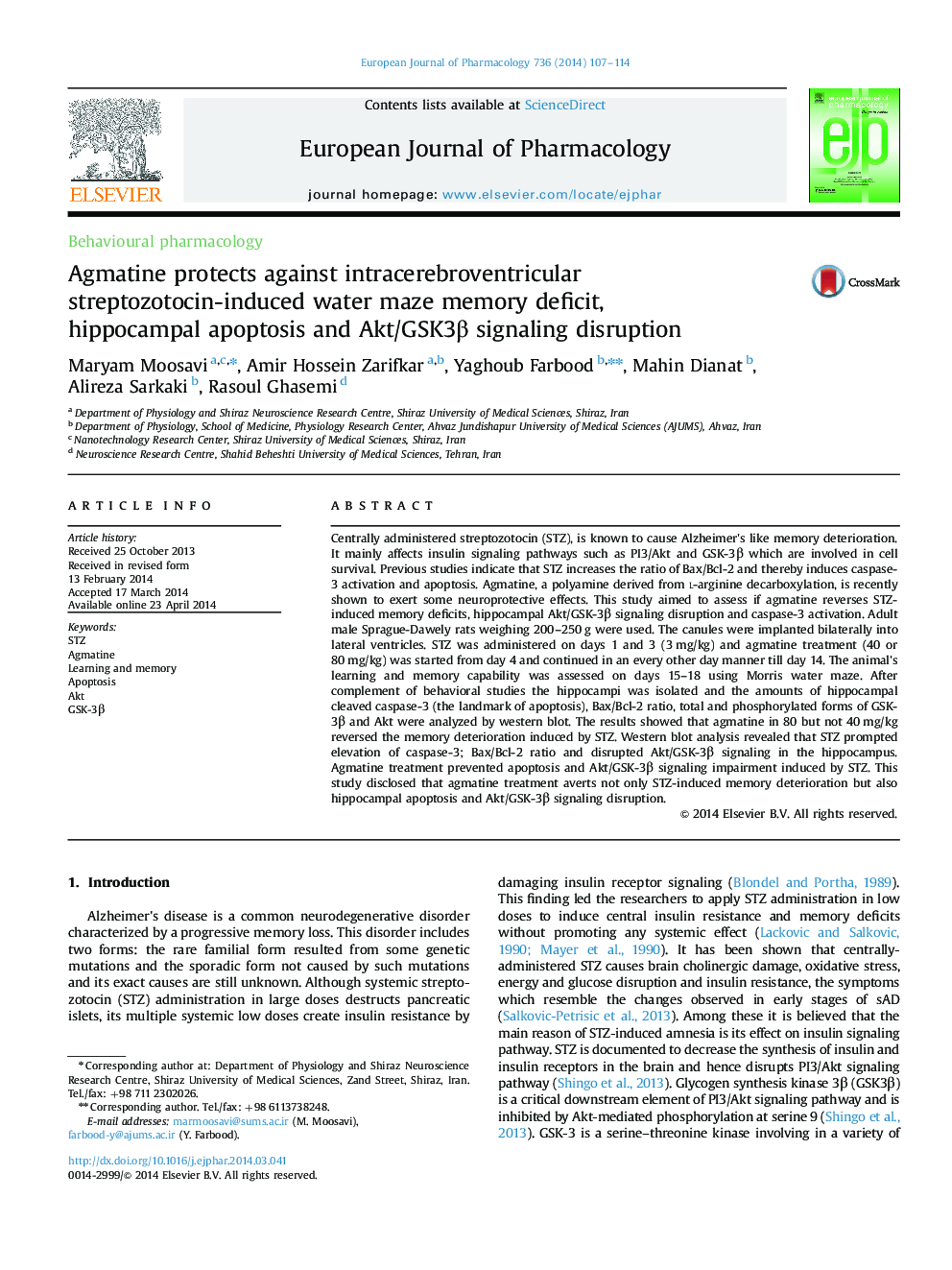| Article ID | Journal | Published Year | Pages | File Type |
|---|---|---|---|---|
| 2531715 | European Journal of Pharmacology | 2014 | 8 Pages |
Centrally administered streptozotocin (STZ), is known to cause Alzheimer׳s like memory deterioration. It mainly affects insulin signaling pathways such as PI3/Akt and GSK-3β which are involved in cell survival. Previous studies indicate that STZ increases the ratio of Bax/Bcl-2 and thereby induces caspase-3 activation and apoptosis. Agmatine, a polyamine derived from l-arginine decarboxylation, is recently shown to exert some neuroprotective effects. This study aimed to assess if agmatine reverses STZ-induced memory deficits, hippocampal Akt/GSK-3β signaling disruption and caspase-3 activation. Adult male Sprague-Dawely rats weighing 200–250 g were used. The canules were implanted bilaterally into lateral ventricles. STZ was administered on days 1 and 3 (3 mg/kg) and agmatine treatment (40 or 80 mg/kg) was started from day 4 and continued in an every other day manner till day 14. The animal׳s learning and memory capability was assessed on days 15–18 using Morris water maze. After complement of behavioral studies the hippocampi was isolated and the amounts of hippocampal cleaved caspase-3 (the landmark of apoptosis), Bax/Bcl-2 ratio, total and phosphorylated forms of GSK-3β and Akt were analyzed by western blot. The results showed that agmatine in 80 but not 40 mg/kg reversed the memory deterioration induced by STZ. Western blot analysis revealed that STZ prompted elevation of caspase-3; Bax/Bcl-2 ratio and disrupted Akt/GSK-3β signaling in the hippocampus. Agmatine treatment prevented apoptosis and Akt/GSK-3β signaling impairment induced by STZ. This study disclosed that agmatine treatment averts not only STZ-induced memory deterioration but also hippocampal apoptosis and Akt/GSK-3β signaling disruption.
